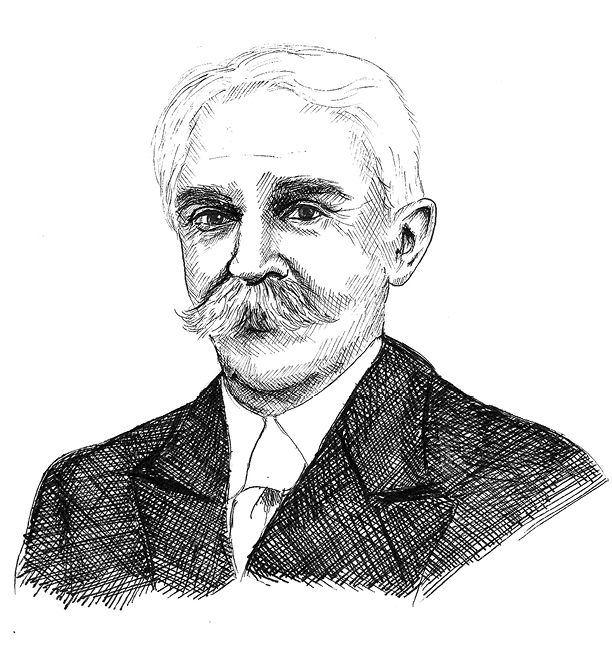Pierre de Coubertin

1863 – 1937
Bonjour.
I was born in Paris, France.
From a young age, I was interested in sport.
It became my dream, to have an international Olympic Games.
We needed a modern version of those held in ancient Greece.
Competition in sport, I believed, was good for the health.
It could also encourage understanding and friendship.
Efforts had been made to reignite the Olympic Games.
In Britain, William Penny Brookes developed various organizations.
Liverpool Athletic Club organized an Olympics Festival, in 1860.
Evangelos Zappas sponsored athletic events, in Athens, Greece.
They were held during 1859, 1870 and 1875.
A British national Olympics was held, in London, during 1866.
There was interest in establishing an international event.

After visiting Britain and Greece, I made arrangements.
This involved many long discussions with the Greek Government.
Crown Prince Constantine gave his support, while politicians wavered.
Also, business friends and acquaintances helped.
In particular, George Averoff donated generously to restore the stadium.
As a result, we held the first international Olympic Games.
It took place, in Athens, during the summer of 1896.
The great Panathinaiko Stadium was the athletics centre.
It was built from the remains of the ancient place of competition.
The white marble stadium looked magnificent.
In all, 19 sports were featured, including cricket.
We remembered the contributions of Brookes and Zappas.
To celebrate, Spyros Samaras composed the Olympic Hymn.
Kostis Palamas, a Greek poet, wrote the lyrics.
As the flag rose to open the Olympics, we sang the hymn.
Four years later, it was my honour to organize the Games.
My own country of France was the host.
The city of Paris welcomed sports people from many countries.
It was a time of great excitement.
In all, 24 nations were represented by competitors.
Events were held between May 14th and October 28th, 1900.
France had more competitors and was top of the winners list.
The event was a success, both on and off the field of play.
So, we planned for the Olympic Games to be held every four years.
The organization of these became my full-time job.
My role enabled me to bring people from many countries together.
My hope was that it would encourage friendship and peace.
Therefore, I was shocked when Germany invaded France.
The First World War wrecked more than the Olympic plans.
Millions died and were wounded in battle.
After the war, millions more died from influenza-related infections.
To keep the spirit of the games alive, I made a decision.
In 1914, an Olympic flag was created with five interlocking rings.
The colours of blue, yellow, black, green and red were chosen.
They represented the colours of the countries that had competed.
It was with joy that the Olympic Games of 1920 were opened.
In Antwerp, we celebrated the start of a new era.
I wrote an oath for all athletes, read by Victor Boin of Belgium.
“In the name of all competitors, I promise that
We shall take part in these Olympic Games
Respecting and abiding by the rules that govern them,
In the true spirit of sportsmanship for the glory of sport
And the honour of our teams”
It was my hope that competition could replace conflict.
My executive role continued, as Honorary President, until 1924.
After my retirement, I continued to work for the organization until 1937.
It was time to hand the organization and planning to a new generation.
In 1928, the tradition of having the Olympic flame was revived.
So, in 1936 the idea was extended by Carl Diem.
The flame was lit at the ancient site of Olympia, by a woman in white.
Then runners took the Olympic Torch to the host city of Berlin.
It was a great link to the spirit of the ancient games.